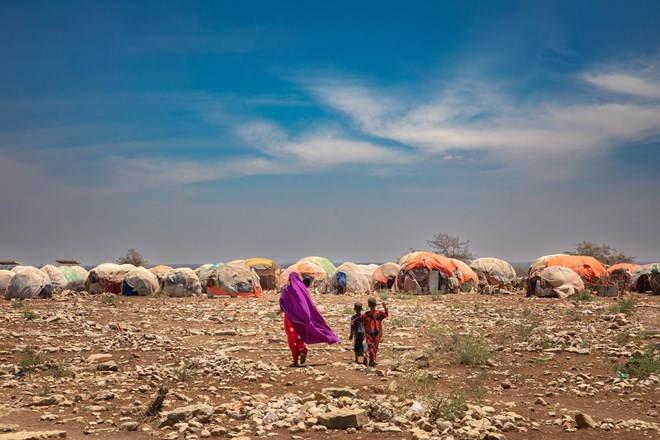Somalia Faces Worsening Humanitarian Crisis Amid Drought, Evictions and Disease Outbreak-UN

GOOBJOOG NEWS|MOGADISHU: Somalia is facing a worsening humanitarian crisis as drought, mass evictions and a diphtheria outbreak intensify suffering across the country, according to aid agencies.
According to a humanitarian brief by the UN OCCHA in August released on Sunday, drought in northern and eastern regions has left 2.5 million people in 26 districts in need of assistance. Nearly 900,000 live in the hardest-hit areas, where water shortages and depleted pastures are driving displacement. In Awdal, 25 boreholes serving more than 20,000 households require urgent repairs, while in Puntland at least 163,000 people need immediate water support. Livestock prices have dropped sharply, eroding pastoralists’ purchasing power.
Funding shortfalls have forced the closure of health and nutrition facilities, further straining families. The government has pledged $700,000 for Awdal, while Qatar, Djibouti and the UAE have provided aid, but agencies warn the scale of needs far exceeds available resources.
Displaced communities are also under threat from forced evictions. More than 141,000 internally displaced people (IDPs) were expelled from temporary shelters between January and August, 81 per cent of them in Banadir region. Evictions have destroyed schools, water points and latrines worth more than $1.3 million, undermining fragile community resilience. Nearly 300,000 IDPs remain at high risk.
Meanwhile, health officials have reported a surge in diphtheria cases, with 2,109 suspected infections and 99 deaths since January. Most patients are unvaccinated children over five years old, with outbreaks reported in Hirshabelle, Puntland, Galmudug and South West State. WHO and UNICEF are supporting vaccination campaigns and treatment, but gaps in funding and supplies threaten to stall progress.
Marking World Humanitarian Day on 19 August, aid agencies renewed calls for protection of humanitarian workers and more donor support. Somalia’s 2025 Humanitarian Response Plan is only 20 per cent funded, leaving millions at risk as drought, displacement and disease deepen the crisis.